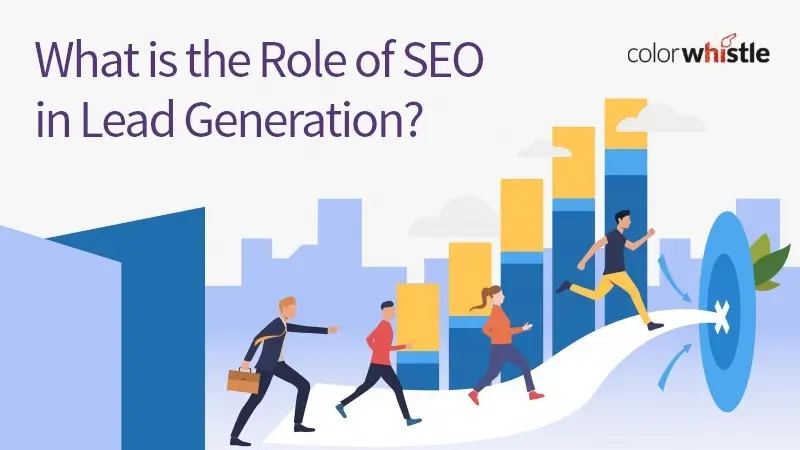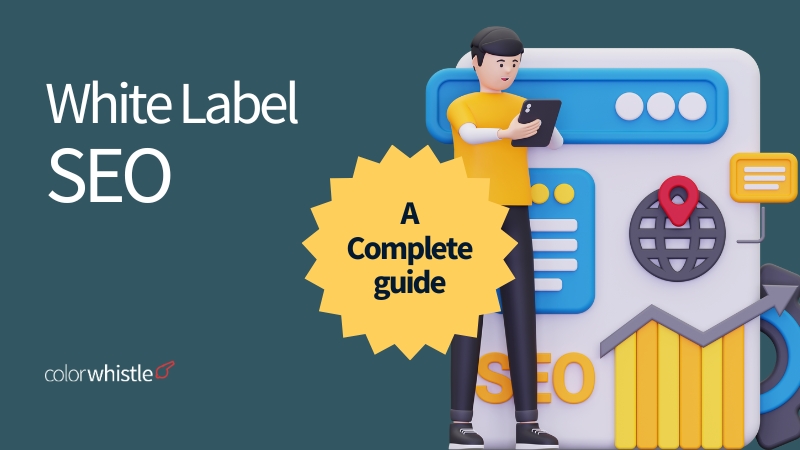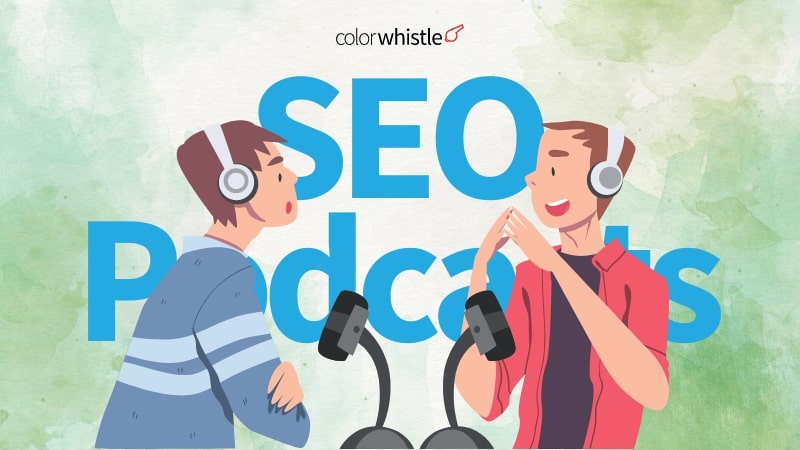Search Engine Optimization (SEO) and lead generation are overlapping marketing concepts but are actually quite different. “SEO for lead generation” – your ultimate goal in doing SEO should be, lead generation
As a business owner, it must be hard to figure out where to put your focus. From an SEO service agency perspective, we would say, both are important. But the connection between the two and how they matter to your business is not always as plain as the nose on one’s face.
In this blog, we will walk you through effective digital marketing company’s SEO tips for lead generation. This will help you set up an end goal, which is, lead generation, and focusing on that specific milestone.
What is SEO?
SEO is the process of improving the visibility and traffic of your website via organic or free search results on search engines. It is the practice of refining web pages to improve your rankings on the search engine results page. The ultimate goal of SEO is to increase website visibility so you can bring in the right people via search engines. SEO,
- Improves visibility and ranking
- Increases organic search engine traffic
- Give more visibility and makes your product or service as trustworthy in the user’s mind
Also Read
What is Lead Generation?
Lead generation focuses on capturing the interest of consumers in your product or service with the ultimate aim of procuring sales. It is an essential process for business-to-business (B2B) and business-to-consumer (B2C) companies. Lead generation,
- Supports healthy business growth
- Attracts qualified leads
- Offers a transition from consumer to customer
Now that you understand that SEO and lead generation are different, let’s see how you can connect them together to generate more traffic and leads while building a pipeline for sales.
SEO vs. Lead Generation – The Best of Both the Worlds
Having worked with many clients, our digital marketers at ColorWhistle also believe that combining SEO and lead generation resulted in generating more leads and also getting.
How does SEO help with lead generation?
In a nutshell, here’s how it helps.
- Helps you rank for business-related keywords you want to target
- Potential customers will find your content via organic search results
- If the content meets the needs of your target audience, you will have the opportunity to convert the ordinary visitor into a lead, and eventually, make a sale
SEO will serve as a funnel that brings in a stream of leads to your website. Overall, it will make your website one of the best lead-generation tools.
Earlier, most companies used cold calling (an outbound marketing tactic). After the advent of digital marketing, cold calling has become quite ineffective. Click here to learn what sales experts had to say about cold calling.
In contrast, SEO (inbound marketing tactic) helps leads find you. The SEO leads that approach you will be more receptive to what you offer than the people you approach out of the blue.
Here are some interesting statistics about SEO lead generation that you need to know.
- 57% of B2B marketers say that SEO generates more leads than any of their other marketing initiatives. (Source – Junto)
- SEO leads have a 14.6% close rate. (Source – HubSpot)
- If done right, SEO can drive a 14.6% conversion rate. (Source – 99 Firms)
- 60% of marketers consider inbound strategies like SEO and blog content to be their top source for high-quality leads. (Source – HubSpot)
On the whole, if you are looking for effective tactics to generate more leads, SEO lead generation is one strategy you can’t ignore.
Also Read
SEO for Lead Generation
Here’s how you can build a solid SEO plan for your business website. We have outlined some of the simple steps you can take to boost your website’s organic traffic. By following these steps, you can improve your chances of generating new leads. You may already be familiar with the steps, but by revisiting these again, you will be able to find the areas that you failed to concentrate on.
1. Keyword Research
We are sure that you already know the role of content – It helps to attract more potential audience. Take a look at your company’s value proposition and buyer’s persona and then think about what describes your offering, the key terms for which you would like to appear in SERPs, and the terms your audience is looking for when they want to find a solution for a problem. You can tweak your content based on these findings.
Then you can use tools such as Moz, Google’s Keyword Planner, and Google Search Console to further improve your keyword research and further enhance your content.
2. Create Content Clusters
If you think content optimization is adding keywords, you are wrong. Just by adding keywords to your content, you cannot improve your online presence.
Search engines have evolved and they look beyond keywords to deliver accurate search results. They concentrate more on context and intent.
This means you need to create high-quality content marketing services in the area of your expertise. Think about your searcher’s intent and what they want to know. To map out a content strategy, you can use topic clusters as they have several SEO benefits.
3. On-Page Optimization
On-page optimization is important because it helps search engines to better understand your content and figure out if it applies to the query of a searcher.
Search engines are becoming more complicated and are giving more importance to relevance and semantics in SERPs. Tweaking what is visible to users on your web pages (images, video, or audio) and elements that search engines can view (heading tags, structured data) will give you more control as opposed to off-page optimization which mainly concentrates on backlinks.
4. Link Building
Link building is an important aspect of SEO marketing. It plays a major role in the growth and success of your website. They help to improve your website rank, drive website traffic, and increase brand exposure.
There are a few important aspects you need to keep in mind when building links. Not all links have equal value. For example, a link from Forbes will have a greater impact on your ranking than a link from a newly built website. We know that getting links from websites such as Forbes is a tough job. So, as a rule of thumb, try to get links from websites that have higher domain authority than your website.
5. Mobile Optimization
According to CIODive, up to 70% of web traffic happens on a mobile device. As mobile usage continues to grow, you have to make sure your website is optimized for mobile because it is the key to staying competitive and relevant. We are also sure that you absolutely hate to read a tiny version of a desktop webpage on a mobile.
You can fix this by making your website responsive. If it is beyond repair, we suggest you do a complete website redesign. This will make sure that users can navigate your website easily and improve your website usability score.
6. Repurpose and Update Old Content
If you already have a considerable amount of content on your website, we would suggest you concentrate more on it. You can update and refresh your existing content instead of neglecting it entirely.
Search engines love new content. So, review your old content and figure out how you can improve it by adding new information, facts, or statistics.
7. Page Speed
Improve your website’s loading speed. A fast-loading website not only provides a better user experience but can also positively impact your search engine rankings.
8. Local SEO
Claim and optimize your Google My Business listing and ensure that your NAP (Name, Address, Phone) information is consistent across the web.
9. User Experience (UX)
Focus on providing an excellent user experience. This includes easy navigation, a clear call to action, and a user-friendly layout.
10. Conversion Optimization
Implement clear and compelling calls to action (CTAs) on your website and landing pages. Make it easy for visitors to sign up, request information, or make a purchase.
11. A/B Testing
Continuously test and refine your lead generation strategies. Use A/B testing to experiment with different elements on your website, such as CTA buttons, forms, and content.
12. Schema Markup
Implement schema markup to provide search engines with more details about your content, which can drive rich snippets in search results.
13. Social Media Optimization
Engage on social media platforms to increase brand visibility and drive traffic. Social media optimization can indirectly impact SEO.
14. Analytics
Analyze and monitor your SEO efforts with analytics tools like GA4 and make improvements.
Also Read
Additional SEO Tips for Lead Generation
To ensure your SEO lead generation process is smooth, here are a few more things you need to concentrate on.
- Add compelling titles and meta tags on every page of your website
- Make sure users and search engines can easily understand your website’s URLs
- Keywords in your content must flow naturally
- Give proper image names and use alt tags
- Keep your sitemap updated
- Use robots.txt tag to
- keep search engines from indexing unwanted content
- Fix internal and external broken links regularly
Looking for SEO Services?
Seize and experience the transformative impact of SEO Services & Solutions with ColorWhistle.
Wrap Up
You can use the SEO tactics along with supporting videos from industry experts in this blog to revamp your lead generation efforts. All the techniques mentioned in our blog can turn the tables for you and help you land in a win-win situation.
Remember, SEO is a competitive marketing strategy employed by many B2B and B2C companies. Give importance to the basic SEO tactics and consider using the latest ones with the perfect digital marketing service company.
Looking for an experienced SEO agency to guide your potential customers through the sales funnel? ColorWhistle is here to assist. Our SEO services offer customized plans to position your website dominantly, attract relevant visitors, and convert them into leads. Explore our selection of tailored keyword SEO packages, designed to fit your needs and budget. Whether you’re a small business aiming for local visibility or an enterprise targeting national or global markets, our comprehensive SEO solutions can help you achieve your goals efficiently. Contact us anytime via message or call at +1 (210) 787-3600 to discuss the ideal package for your business objectives
In quest of the Perfect SEO Services & Solutions Buddy?
Be unrestricted to click the other trendy writes under this title that suits your needs the best!
- SEO Reseller Model – A Guide for Digital Agencies
- SEO Guide for Online Small Businesses
- Top WordPress SEO Plugins for Businesses
- Latest SEO Trends Businesses Need to Know
- The Powerful Advantages of Local SEO for Small Businesses
- Best SEO & Marketing Tools for Experts
- Google Algorithm Updates Complete History






Great insights on SEO lead generation!